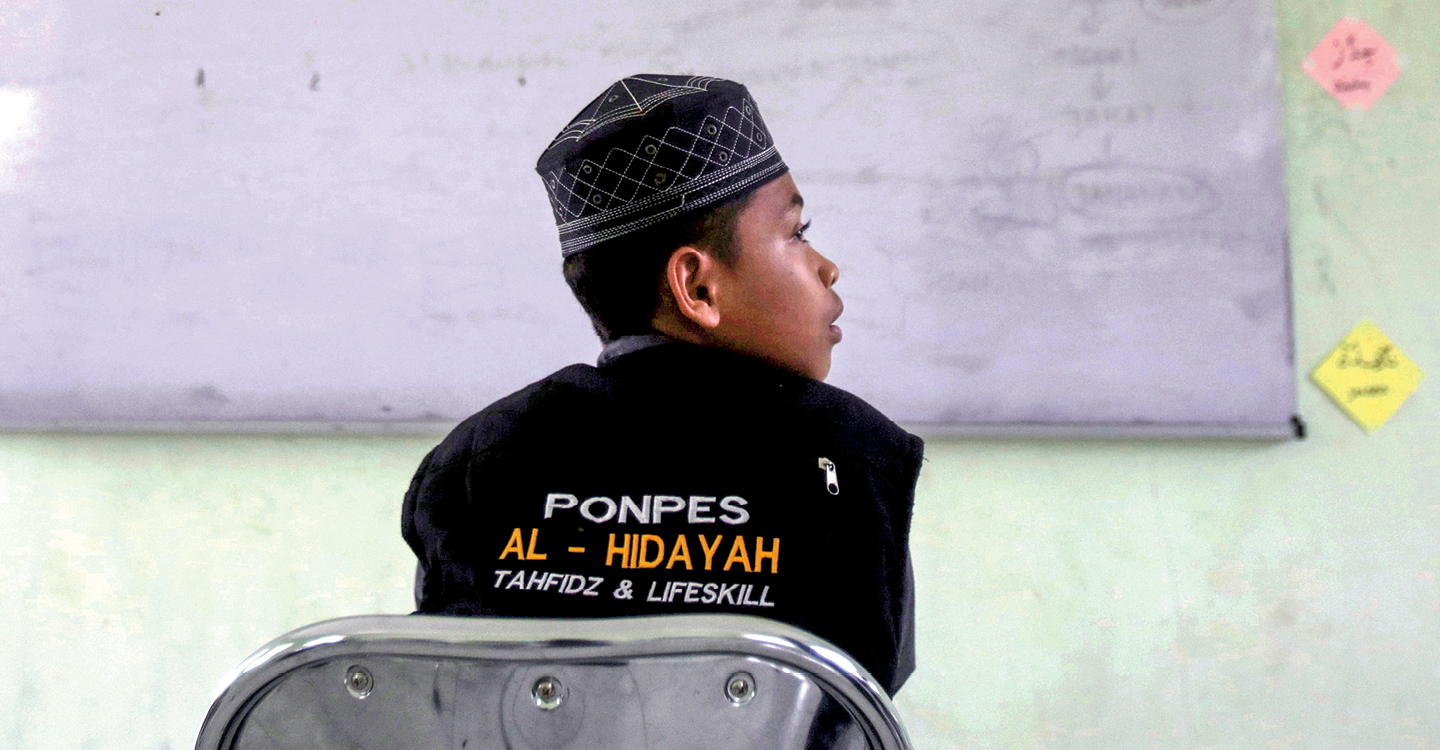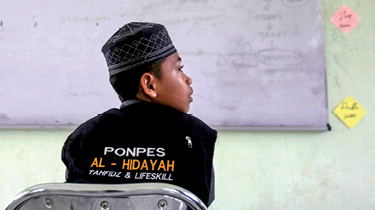One day in the spring of 2018, 7-year-old Ais squeezed onto a motorcycle with her mother and brother. They carried a package that Ais (pronounced ah-iss) refers to as coconut rice wrapped in banana leaves. Her father and other brother climbed onto a different bike with a second parcel. Both motorcycles sped toward a police station in the Indonesian city of Surabaya, a place where people of many different religions live.
The parcels were bombs, and they were detonated at the gate to the police station. The force of the explosion catapulted Ais off the motorcycle. Every other member of her family died. No bystanders were killed. The terrorist group ISIS, based thousands of miles away, claimed responsibility for the bombing, which was meant as an attack on religious diversity.
Ais, who is being identified by her nickname to protect her privacy, is now part of a deradicalization program for children run by the Indonesian Ministry of Social Affairs on a leafy compound in the capital, Jakarta. Her schoolmates include children of other suicide bombers and of Indonesians who were intent on joining ISIS in Syria.
One day in the spring of 2018, 7-year-old Ais squeezed onto a motorcycle with her mother and brother. They carried a package that Ais (pronounced ah-iss) refers to as coconut rice wrapped in banana leaves. Her father and other brother climbed onto a different bike with a second parcel. Both motorcycles sped toward a police station in the Indonesian city of Surabaya. It’s an area where people of many different religions live.
The parcels were bombs. They were set off at the gate to the police station. The force of the explosion threw Ais off the motorcycle. Every other member of her family died. No bystanders were killed. The terrorist group ISIS, based thousands of miles away, claimed that it was behind the bombing. It was intended to be an attack on religious diversity.
Ais is being identified by her nickname to protect her privacy. She is now part of a deradicalization program for children. The Indonesian Ministry of Social Affairs runs the program on a leafy compound in the capital, Jakarta. The program is for children of suicide bombers and of Indonesians who were intent on joining ISIS in Syria.


